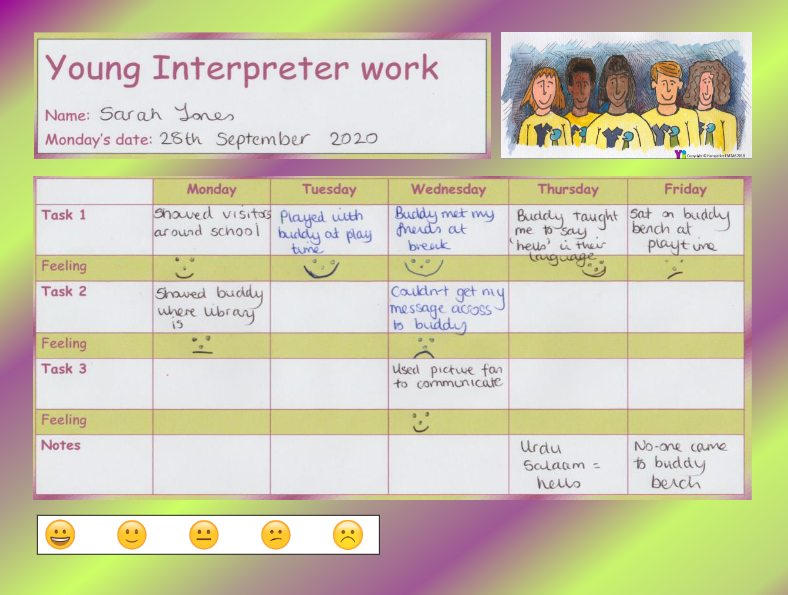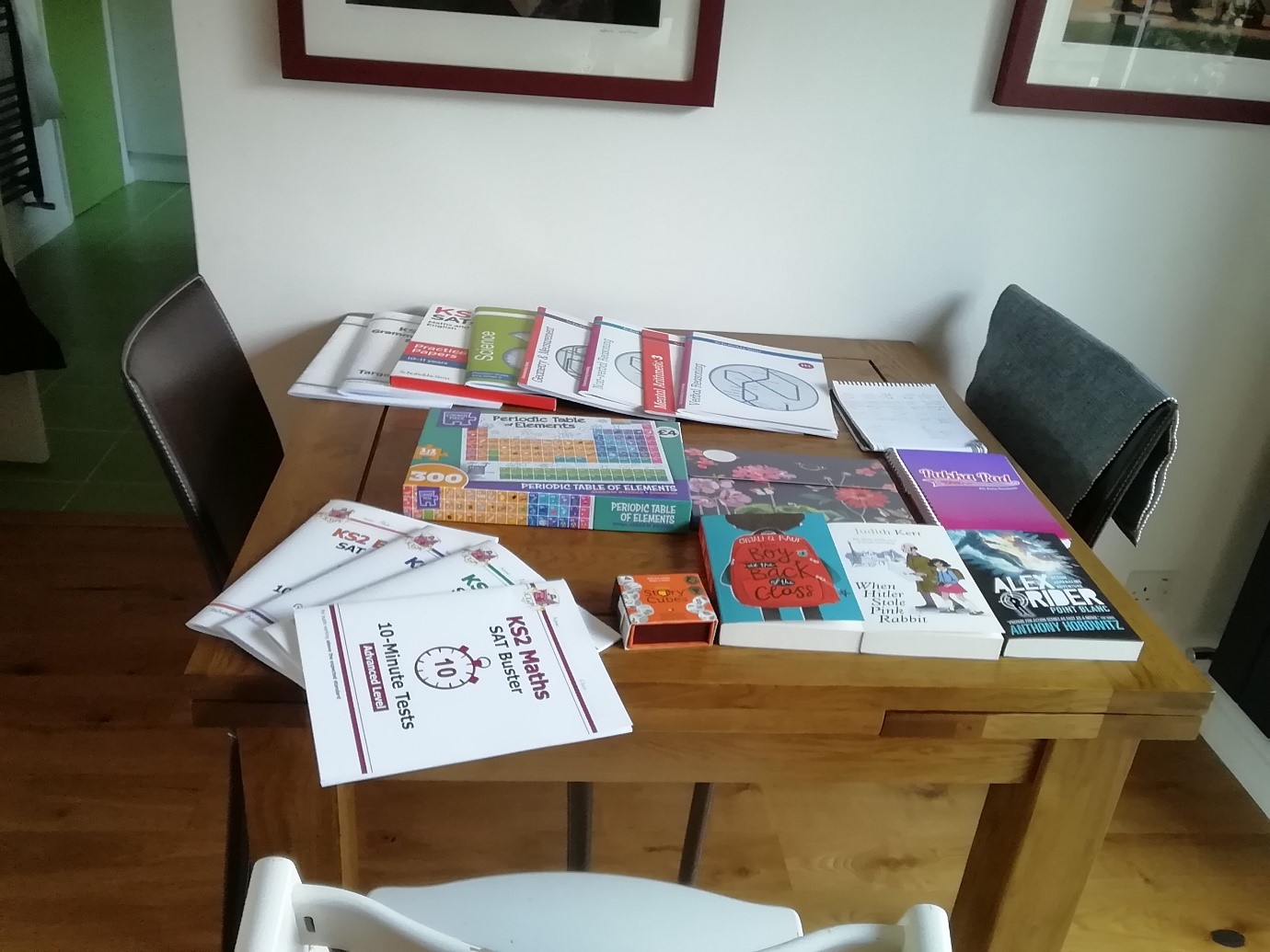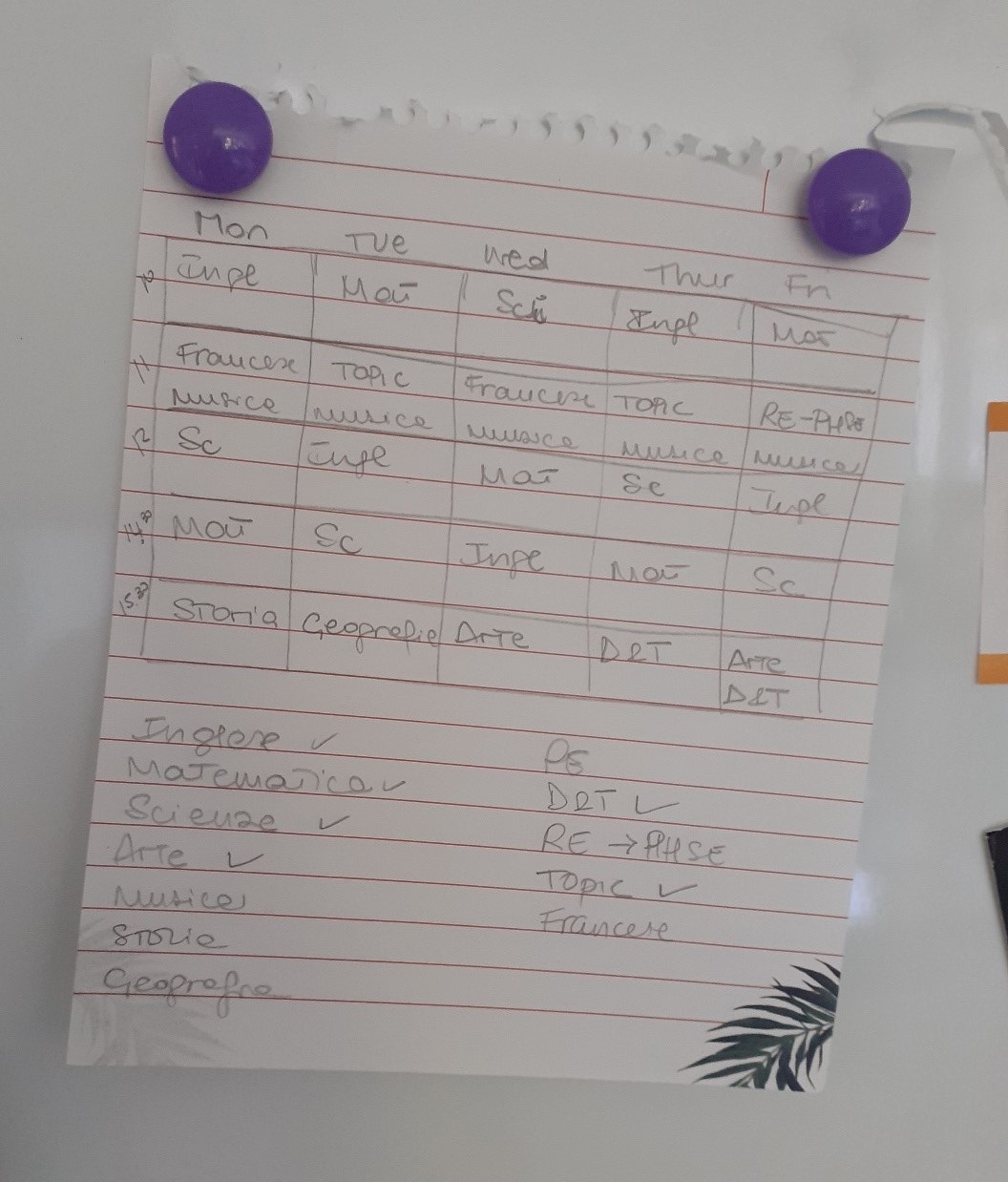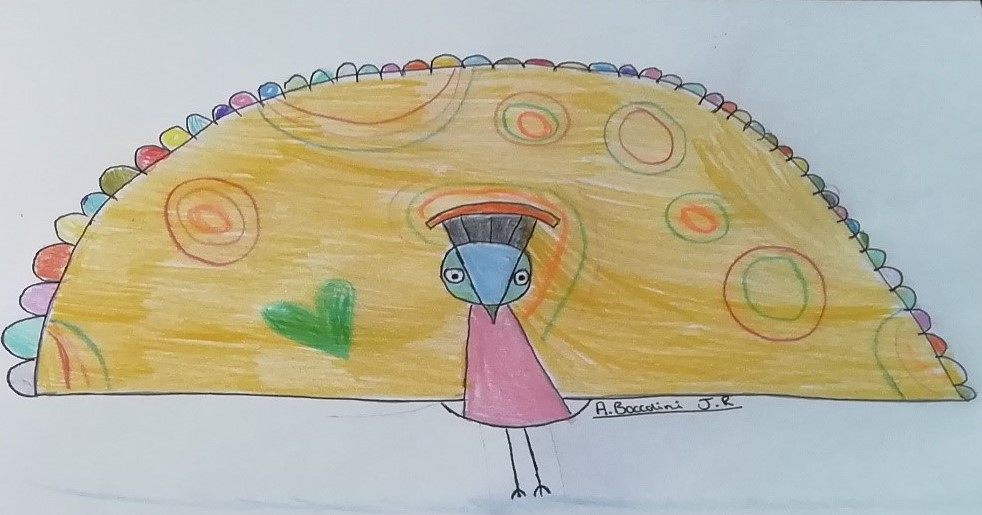Site blog
Anyone in the world
By the Hampshire EMTAS Specialist Teacher Advisors

Welcome to this new academic year. The EMTAS team is feeling refreshed after the summer holiday and looks forward to continuing their work. We’re particularly excited to support more schools this year as they work towards achieving an EAL or GRT Excellence Award. In this blog you will find out what’s in store for 2021-22 to support your professional development as well as your award submission. You will also learn more about our Heritage Honours Award, find out about staff changes in our team and catch up with important research projects.
Network meetings
The dates of our EAL network meetings can be found on our
website. We will also be holding
specific network meetings for Early Career Teachers, the details of which can
be found on the same page of our website. The termly GRT-focused network meetings will continue to be held
online this year. Like our EAL network meetings, they are free to
attend for Hampshire-maintained schools. To find out when the next ones
are, check the Training section of the EMTAS website.
EMTAS conference
We are very much looking forward to the EMTAS Conference on Friday 15th October at the Holiday Inn in Winchester. It promises to be an enlightening day with Eowyn Crisfield as one of our keynote speakers. She is an acclaimed expert in languages across the curriculum and has a wealth of knowledge in this field. Sarah Coles will be sharing her research findings on ‘Pathways to bilingualism: young children’s experiences of growing up in two languages’ and Leanda Hawkins will speak of her experiences of education from the perspective of belonging to the Romany community. There will also be a selection of cross phase workshops for delegates to take part in and stalls to see some of the latest resources available to support EAL and GRT pupils in education. Everyone who signs up will receive a free set of the latest EAL Conversation Cards valued at £45. There are limited spaces so please sign up as soon as possible. For further information and online booking please see our flyer attached to this blog.
New e-learning
We are pleased to announce that we have new E-learning modules now available:
- Supporting children and families from Gypsy, Roma and Traveller (GRT) backgrounds
- Developing culturally inclusive practice in Early Years settings
- The appropriate placement of learners with EAL in groups, sets and streams.
Our e-learning modules are free to access for Hampshire-maintained schools. To find out how to obtain a login, please see our Moodle.

Heritage Honours Award
The EMTAS Heritage Honours award, launched last academic year, celebrates the achievements of children from BME, EAL and GRT backgrounds at school and within the home/community. Children and young people can be nominated for an award by the school they are currently attending. More than 60 successful nominations were received last year. Reasons for nomination variously include success in heritage language examinations, practical and creative use of first language within the school environment, sharing cultural background with peers, acting as an empathetic peer buddy, success in community sporting events and excellent progress in learning EAL. Nominations are now open for this year. To find out more about how to nominate a pupil, see our Moodle.
Research
Debra Page is entering the third and final year of her PhD researching the Young Interpreter Scheme. Data
collection happened online due to the pandemic and the first and second wave of data collection with 84 children across 5 schools is now complete. The third and final data collection will be in November and all the data
will then be managed and analysed. In her last update, Debra shared a YI diary
and additional training resource she created. She delivered this virtually with
each school during their YI training session and initial feedback has been very positive. It is hoped that these extra resources will form part of the YI
training in the near future. The children are excited to complete their diaries
about the work that they do as a Young Interpreter. If the diary is something
that you are interested in, please get in touch. We look forward to finding out
results of what is learnt about the Young Interpreter Scheme.

Sarah Coles will update us on her own PhD in a separate blog very soon. Her PhD is part time and she’s just embarking on her fourth year of study. She’ll mainly be involved in data collection this year and a number of schools with children from Polish and Nepali families starting in Year R have agreed to support this. Sarah is hoping the families she and members of our Bilingual Assistant team approach will be similarly willing to be involved.
Staffing
At the end of last term, we wished Chris Pim a happy retirement and welcomed back Astrid Dinneen following her maternity leave. As a result, we have made some changes to the geographical areas the specialist teacher team will be covering:
Sarah Coles – Winchester
Lisa Kalim – New Forest
Astrid Dinneen – Basingstoke & Deane
Jamie Earnshaw – Eastleigh, Fareham and Gosport
Claire Barker – Hart, Rushmoor and East Hants
Lynne Chinnery – Havant, Waterlooville and Isle of Wight
Helen Smith – Test Valley
Sarah, Claire and Helen will also cover GRT work across the county.
We also welcome Abi Guler to our Bilingual Assistant team. He will be working with our Turkish families. We are delighted to have also newly recruited Fiona Calder as our new Black Children's Achievement Project Assistant.
We are all looking forward to continuing working with you. In the meantime, be sure to subscribe to the blog digest and visit our website.
[ Modified: Friday, 10 September 2021, 11:29 AM ]
Comments
Anyone in the world
By Hampshire EMTAS Bilingual Assistant Eva Molea

In my Diary of EAL Mum I share the ups and downs of my experience of bringing up my daughter Alice in the UK. After 9 weeks of lockdown and with the happy prospect of school re-opening, I reckon it is time for me to reflect on the last couple of months, especially on the irregular shape that Alice's education has taken.
I would like to start with a big shout out to all teachers, TAs, and school staff in general. You, guys, are my true heroes. Where do you get all your patience from? How can you manage with 30 children, day in - day out for 39 weeks a year, when my own one has driven me round the bend in not even 10 weeks??
Anyway, let's get back on track. When the nation was told that the 20th of March would have been the last day of school for the foreseeable future, I was hit by an education frenzy, so I went to the bookshop and bought:
- as many learning packs as I could possibly carry
- two books that I believed Alice should read (=I wanted to read) and one that she had asked for
- a pack of story cubes
- a notebook as we are always short on paper, and a letter set should she ever feel the need for correspondence
- a jigsaw puzzle of the periodic table of elements
- sketchbook (hoping that Alice would keep a diary of this peculiar period).
Proud of my shopping, I showed it to Alice when she came back from school on the 20th of March, but her reaction was far less enthusiastic than I had expected. I wondered why...
The school had provided her with SATs buster test booklets for maths, SPaG and reading and a grid of activities on Ancient Greece. They had also set tasks on the digital platforms for the children to complete.
On Sunday the 22nd of March, I sat down with my husband (aka the Headmaster) and made a learning plan for the first week: 5 days, 5 subjects per day. I was very proud of my broad and balanced curriculum.

So, on Monday morning, bright and early, we sat down to work. We focused on the booklets and the digital activities and easily Week 1 was out of the way.
On Week 2, having completed all the booklets and digital tasks, we approached the Ancient Greeks grid. I really enjoyed this topic. In Southern Italy, also known as Magna Graecia (Big Greece), Ancient Greek culture had shaped ours well before the Romans, and we learnt the ins and outs of it in school, so it was lovely to be able to share this with Alice. We did some learning on the BBC Bitesize website; we read some myths from books we had brought with us from Italy; we used the story cubes to write Alice’s own myth. But I was not satisfied. So, we had a Greek Day, where we:
- tried to learn Sirtaki, the Greek traditional dance, following some videos on YouTube;
- dressed Alice up as a Greek Goddess (YouTube tutorial);
- learnt the alphabet and the polite words in modern Greek, and looked at how Greek language has influenced most European languages, including English;
- cooked pastitsio and tzatziki, following the recipe that my lovely Greek colleague, Eva P, had recommended. And bought baklava…yum!
This was a great way for the whole family to learn new things and share our knowledge with Alice.
Weeks 3 and 4 of lockdown were the Easter holiday, and my lovely child decided she was not going to touch any schoolbooks and the Headmaster agreed, so I could be off task too and enjoy the sunshine. We did a lot of drawing tutorials on the YouTube channel of the children’s illustrator Rob Biddulph, that are glued in the sketchbook.
Alice devoured one of the books I had bought for her (The boy at the back of the classroom), and tried the other one (When Hitler stole pink rabbit) but found it too hard (or not interesting enough, I’m not sure). Fortunately, dance and gym went virtual that week, so we had enough to keep her entertained. We also played some traditional Italian card games.
Getting back to work on week 5 proved to be quite hard. By then, Alice was feeling very lonely and bored because we did not have the skills to keep her interested and, not to be underestimated, we also had some work to do. But fortunately, the school set more structured homework for the children and we were not sailing in the dark anymore. Having daily work to complete was very helpful, as Alice had some tasks she could carry out independently and ask for the occasional help, whereas when she had to make research on the Internet I was a bit concerned about the appropriateness of content she might come across. For guidance, I also re-read the EMTAS information leaflet on safeguarding and wellbeing which includes online safety .
From week 5 onwards, home learning has been an emotional rollercoaster. We have gone from enthusiastic reactions to some tasks to flood of tears for others, covering all the shades in between. Obviously, had Alice been in school, her learning would have been tailored to her abilities (including the right challenges) and more interesting for her. But I have to say that I really enjoyed learning with her, especially because we all had a very intense EAL experience as we used Italian to investigate, question, explain and reinforce everything and both the Headmaster and I have noticed that Alice’s Italian has improved and her vocabulary has widened, with many new and more interesting words being used. She has also enjoyed listening to audiobooks in Italian and asked me to read to her in Italian at bedtime. EAL parents will be interested in this survey on multilingual language use during the COVID-19 Pandemic.
I pushed my luck and asked her how these 9 weeks had been for her. At first, I got a single word answer: “Boring”. I was expecting that. But then she told me that using Italian for maths had made the subject easier as she still counts in Italian (I didn’t know that), that she felt that her translation skills had improved, and her vocabulary in both languages broadened.
Despite the strangeness of this lockdown period, I really enjoyed playing school with Alice and loved seeing her eyes brighten up when there was something that interested her or when she had finally secured the concepts she was struggling with. But now we all, especially her, can’t wait to get back to school.
PS: The lovely learning packs I had bought have never been touched in these 10 weeks. I will have to force them upon Alice during the Summer holidays…
Visit the Hampshire EMTAS website
Visit our Distance Learning page
Subscribe to our Blog Digest (select EMTAS)
[ Modified: Monday, 22 June 2020, 8:54 AM ]
Comments
Anyone in the world
By the Hampshire EMTAS Traveller Team

The objective of this article is to talk about Distance Learning for Traveller pupils and how to produce quality resources for your pupils who would normally be off travelling from April until November. However this year every teacher across the country, if not the world, has been producing good quality distance learning packs not for the few but for all their learners. This is a bonus for us as a service because it means teachers will all now know how to create Distance Learning materials. Alas this time will pass and fade from memory so to help support the creation of Distance Learning packs for GRT children in the future we have produced this easy to follow guide.
Learning at home
Home learning can cause many worries and concerns for Traveller families. The living conditions of many of the families are not conducive to learning. If a Traveller family comprises more than one child of school age all wanting to do written work or work on a tablet, computer etc. and the family live in a trailer, space can be an issue. Many Traveller families have difficulty with internet access depending on their living conditions as many sites do not have broadband or internet connectivity. The families may say they have internet because they have 3G or 4G on their phones but they don't have the ability to download and do work in a meaningful, straightforward way. It is therefore very important to offer the work in a paper format that can be collected safely from the school.
Some parents, not exclusively Traveller parents, have trouble with literacy and this can create a barrier to them being able to support their child’s learning. Some Traveller parents may not have attended school at all or may have had a shortened school experience or erratic school attendance. These factors can lead to them having poorly-developed literacy skills that prevent them from being able to act as parent teachers in the home following a school based curriculum. Some Traveller parents may say no to the packs telling schools they are managing fine. This can be borne out of fear of not being able to meet the school’s expectations. It helps to talk through with the parent what they are doing with the child at home and to look for learning opportunities in what they are comfortable with. This can be as simple as when they are out for a walk counting the cars or finding flowers and saying what letter they begin with. The children can collect stones and write letters or numbers on them to help them practise counting and letter-sounds.
Most Traveller families follow the rule of Mochadi. This is a cleanliness code that is strictly adhered to in the dwelling place whether it is a house, trailer or chalet. This code does not allow messy play with pens, pencils, glitter, glue, play dough, etc. inside so it is good to look for activities the children can do outside like scavenger hunts, making bug dens, making bee hotels. Many of the Traveller children will be getting educated in their culture during lockdown. Many will be given responsibilities around the home and work with the father. Often the children have animals to look after and girls will be taught cooking and homecraft.
Hampshire Ethnic Minority and Traveller Achievement Service (EMTAS) have created a Distance Learning page to signpost available free resources that may be useful. The EMTAS page is constantly growing and we would love to hear from you if you have made or found a brilliant resource that we can add - and we'll credit to you for submitting it.
The Traveller Times have also created a page of resources that may appeal to some of your Traveller learners and their families.
Fears and coding absences
Many Traveller families had great fears of
Covid 19 before the government issued guidelines for schools and this resulted
in many families removing their children from education either as an extended
absence or to electively home educate them. Some Traveller families did go travelling and asked the school to use
the ‘T’ code as they would be working as they travelled. The ‘T’ code can only be used for very
specific circumstances and travelling to avoid Covid 19 would not be a legitimate reason
to use the code. This link explains
how to use the ‘T’ code accurately.
The absence coding of Traveller children who went off school before the government closure is at the discretion of the Headteacher who may wish to seek advice from their local EMTAS or Inclusion service.
The Traveller Times team recognised early
on that many of their members and families had a great fear of this illness and
they produced a simple factual video made by Lisa Smith, a Traveller and one of
the editors of the Traveller Times, to help allay the fears of Traveller communities.
Challenges ahead
Once this is over and schools go back to some semblance of normality, the challenge of getting Traveller children to return will begin. Many families have fought battles with elders to have their children in education and now these battles will begin again. Many Traveller children who are due to transition to junior, secondary or further education may find the emotional stress and worry too much and opt instead for elective home education and work. It is vitally important to keep in contact with the Traveller parents of children in Years 2, 6 and 11 to reassure them and offer transition support. Schools should contact their local EMTAS for help and guidance with this.
Life will return to normal and our Traveller children will slowly come back into education and challenge us with their learning and sometimes their behaviour but all credit to you, when they come back through your doors – this demonstrates education is valued by our Traveller communities and that they trust you with their child; there is no greater reward than this.
Visit the Hampshire EMTAS website
Subscribe to our Blog
Digest (select EMTAS)
[ Modified: Monday, 4 May 2020, 9:37 AM ]
Comments
Anyone in the world
As the situation regarding the Covid-19 outbreak continues to unfold and as schools, parents and children adapt to their new ways of working the Hampshire EMTAS team is sharing how they will keep up their support.
Hampshire EMTAS is still open for business and colleagues are working hard in the background to maintain our usual level of support:
- The Specialist Teacher Advisors are working on new material and training and are still available for support and advice via email, telephone or videoconferencing (preferably on Microsoft Teams). They are keeping a close eye on the situation and will contact colleagues booked to attend network meetings with an update. Note some events may still happen virtually so do continue to book on and look into downloading Microsoft Teams.
- CPD continues to be available through our EAL e-learning, which is free to Hampshire schools. Please contact us to sign up.
- The Bilingual Assistant Team are going to produce translations of key resources for the EMTAS website. They are also able to produce translations and voice-overs in other languages for curriculum resources to be used with those children they’ve been supporting e.g. PowerPoints to be used in teaching inputs. If teachers in schools have anything like this they want adapted for their learners, please get in touch.
- The Traveller Team are working on new resources for schools and a contingency plan for Gypsy, Roma and Traveller History Month, which for communities in Hampshire is being postponed but which promises a range of fun activities including line dancing and a postcard competition.
- Our language phone lines, SEND/EAL, ELSA and GRT phonelines are still running hence Hampshire practitioners and parents can continue to phone the EMTAS main phone number to speak to a member of staff. Note a list of Hampshire EMTAS colleagues’ email addresses will be shared with Hampshire schools via a ‘school com’ hence school practitioners will also be able to contact particular members of staff directly.
- Our Resources Manager is still processing some orders e.g. for digital subscriptions to the Young Interpreter Scheme but will be unable to send resources out to schools. Our Admin team is working remotely but is still responding to calls and emails from schools.
- We are working on publishing activities for Young Interpreters to carry out from home on our Moodle (free access). Note that a decision will be made about the Basingstoke Young Interpreters Conference after the Easter break.
Finally, we are keen to continue posting blogs every other week but acknowledge our original schedule will need to be tweaked to ensure articles are pertinent to our readers in these highly unusual circumstances. As far as possible our blogs will include useful links for digital resources and advice to support you and families throughout the pandemic. Please subscribe to the blog digest to stay up to date (select EMTAS on the sign up form).
We will start here with a non-exhaustive list of suggested resources which school practitioners are encouraged to share with parents where appropriate. We would like to draw your attention particularly to the Kitabu Dual Language ebook Library. A review of this library written by Hampshire EMTAS Bilingual Assistant Eva Papathanassiou is coming very soon. In the meantime, Mantra Lingua is offering parents of learners of EAL free access to the library. Please contact us for details which you can share with your families.
List of resources
Coronavirus information in other languages
- Doctors of the World
- World Health Organisation (WHO) – choose your language in the top right-hand corner
- Translated posters for hygiene tips from New South Wales Health (Australia)
Ebook libraries
- Download eBooks, eAudiobooks and eMagazines for free from Hampshire libraries
- Ebooks and audiobooks for children currently available for free at World Book Online
- Kitabu Dual Language ebook Library (blog coming soon)
- Free streaming for children on Audible. Includes stories in six languages
- International Childrens Digital Library
Resources for parents and their children
- Free resources for Young Interpreters via the Hampshire EMTAS Moodle
- National Literacy Trust – Parent Zone
- Secondary resources for home learning with the English and Media Centre
- Free British Sign Language course for under 18s
- Free home learning resources for Secondary students from the British Library Learning
- Collaborative Learning Project - Collaborative Activities are ideal for learning at home. You collaborate to make up an activity. You collaborate to do the activity. Then you sanitise the activity and pass it on to another parent or carer
- BBC Bitesize – cross-phase and cross-curricular learning resources
- BBC Programmes categorised as learning
- #stayathomestorytime - 6pm on Instagram – a daily children’s story by Oliver Jeffers
- Jack Hartman on Youtube - maths and English with physical exercises to do
- Topmarks - resources for KS1 and KS2
- The Confident Teacher – weekly themed activities and resources
- @littlelessons20 on Twitter. Two video lessons each day suitable for primary pupils
- Kelly’s Home Centre on Facebook - live free virtual cooking classes for children aged between 6 and 14
- Cambridge Assessment – offering their ResourcePlus suite, with videos and teaching resources, for free. Secondary phase
- EAL journal – for further links of suggested websites and activities
Culture
- The Royal Opera House - programme of free online content for the culturally curious at home
- ‘A list of free, online, boredom-busting resources’ from Chatter Pack. Includes links to virtual tours of museums and galleries, links to concerts and much more
- Snow Mouse – a wintry 40-minute tale for the under-fours
Online learning platforms
- Education City - resources to support literacy, numeracy and cross curricular work (including a Learn English module)
- Learning Village – blended learning materials for EAL learners
Technology
- Parents can order a free 14-day trial C-pen to be sent home in order to support their children's literacy.
Fitness and wellbeing
- Live PE workouts each morning with Joe Wicks, Body Coach, on Youtube
- PE workouts on demand with Les Mills Born to Move
CPD for school staff
- EAL elearning
- Blog
- Hampshire EMTAS website
- Bell Foundation
- Naldic
Visit the Hampshire EMTAS website
Subscribe to our Blog Digest (select EMTAS)
[ Modified: Tuesday, 24 March 2020, 5:14 PM ]


